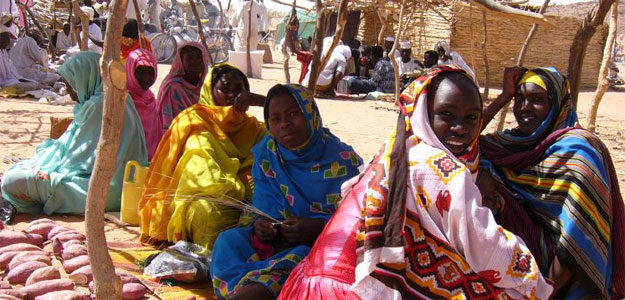
Moves To Stop A Desert's March

Balancing competing interests for food and forest became a primary concern for the governments of Chad and Nigeria in the past month, as the two nations- which share a border along the arid Saharan desert that surrounds Lake Chad- both made warnings on desertification sometimes startling in their frankness.
In Chad, the government sparked widespread frustration and even riots as they banned the burning of charcoal, with Environment Minister Ali Soulemain Dabye citing the 60% loss of the country's tree cover as a cause of desertification, which he blamed on the use of trees for charcoal. This comes as a sweeping maneuver in a country whose citizens were already hampered by rising food costs and were largely caught unawares by a speedy government campaign that rounded up charcoal cargo trucks and removed all charcoal from the open market seemingly overnight. The BBC reported that after the government suggested citizens use gas for cooking, a survey revealed that 95% of Chadians do not have gas appliances and must travel to neighboring Cameroon to purchase the gas itself.
To the south, in Nigeria, Environment Minister John Odey announced at a ministry meeting that "the problem of drought and desertification is the greatest environmental challenge we have today in Nigeria," according to The Daily Independent in Lagos. This marks one of the most high-profile acknowledgements of desertification in Nigeria, whose northern, generally poorer states suffer as the Sahel encroaches on agricultural and pastoral lands.
Nonetheless, the admission on the parts of both of these government ministers indicates a sea change in the thinking on desertification in Africa, a change of direction that has come to light in recent months with the proposals surrounding the Great Green Wall, a plan spearheaded by Senegal to create a longitudinal strip of green space- estimated to be a 5 kilometer wide swath of tree planting- that would stretch from Senegal to Djibouti. As Senegalese President Abdoulaye Wade explained at a June 2008 UN Food and Agriculture Association meeting in Rome, the wall would be outfitted with "water capture basins...to collect rain water during the rainy season" that would otherwise be lost to evaporation or ocean runoff. Though the plan requires immense collective cooperation between the Sahelian states, it appears to be an important indication that desertification is now a multi-state problem that won't be solved by banning charcoal alone.
-Equatorial Press Staff Report. Photo Courtesy of Mark Knobil.


